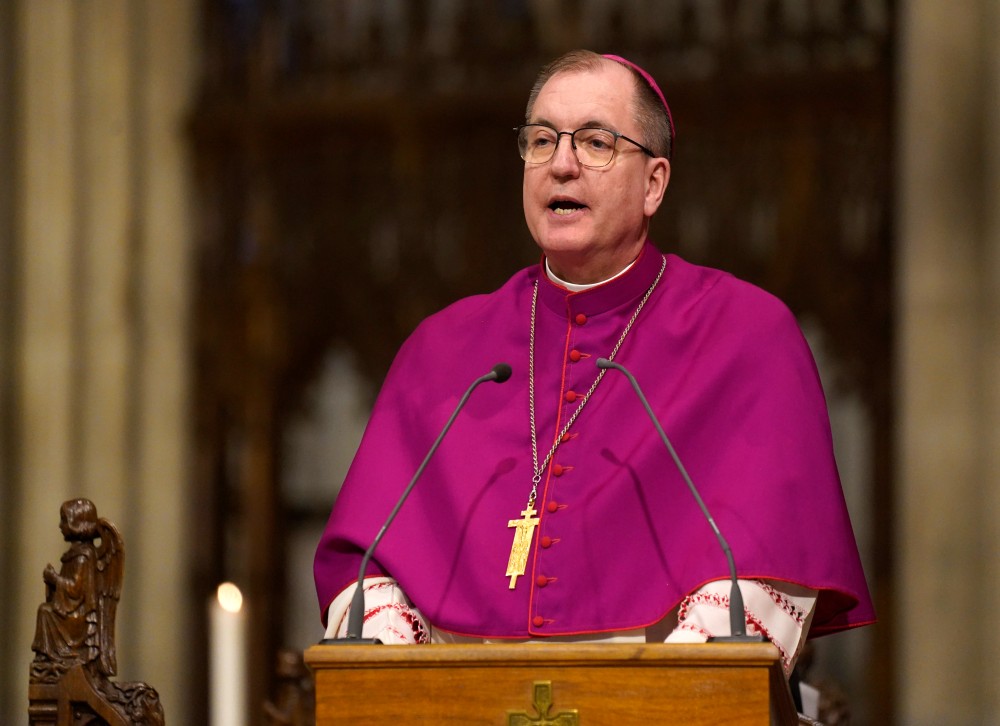
WASHINGTON — In its revised bankruptcy plan filed Nov. 27, the Diocese of Rockville Centre, New York, said it planned to offer $200 million to approximately 600 survivors of abuse, saying this was its “best and final offer.”
The diocese filed for bankruptcy in October 2020, a year after the passage of the Child Victims Act in New York state, which extended the statute of limitations for a survivor of child sexual abuse in criminal and civil cases.
In a Nov. 28 statement, the Rockville Centre Diocese said it would provide an immediate cash payout of at least $100,000 to abuse victims who filed a lawsuit against the diocese and at least $50,000 to those victims without lawsuits.
The diocese called the plan “the best, most efficient, and most effective means to immediately begin compensating all eligible survivors equitably while allowing the diocese to emerge from bankruptcy and continue its charitable mission.”
Funds for the settlement will stem from a diocesan contribution of $50 million and a $150 million contribution from “parishes, co-insured parties, and other Catholic ministries,” the statement said.
In announcing this proposal, the diocese called it the largest-ever settlement offer made in diocesan bankruptcy history. In 2007, the Archdiocese of Los Angeles offered a settlement of $660 million to 508 people who claimed to have been abused by priests in the archdiocese, but the archdiocese had not declared bankruptcy.
The proposed plan of the Rockville Centre Diocese did not sit well with the U.S. bankruptcy judge who is overseeing the bankruptcy case.
A Reuters report said U.S. Bankruptcy Judge Martin Glenn in Manhattan would not approve the diocese’s bankruptcy plan without getting detailed financial information from each of the parishes in the diocese. He also said abuse claimants who are to vote on the plan must be able to weigh the value of their claim against the resources in the parish where their abuse occurred.
Reuters also reported that James Stang, who represents the official committee of abuse victims in the case, said that claimants would not vote for the current plan, which would remove legal claims against the parishes.
In its statement, the diocese said their latest offer was in response to the judge’s threat in July that he would terminate the bankruptcy proceedings if the diocese and abuse survivors failed to reach an agreement.
The diocese also said it agrees with the judge that “survivors have waited too long for compensation and that any alternative to a global settlement plan creates chaos that puts both survivor compensation and the futures of parishes at risk.”
It added that it has “already made it clear that it is at the end of its resources” and that “continuing to prolong the case, or dismissing the case, will ensure that payments to survivors only go down from the current settlement offer.”
The diocese said survivors “deserve a settlement now” and it hoped that all parties, including survivors and their legal advisors, would vote in favor of the “equitable and unprecedented offer.”
The statement also pointed out that many families on Long Island “depend on the diocese, parishes, and Catholic ministries to deliver compassionate health care, housing, education, food security, substance abuse, mental health and grief counseling, immigration services, religious and spiritual care.”
It stressed that while abuse survivors deserve compensation, the diocese’s “charitable mission is more important than ever in these uncertain times. Both face a vulnerable and uncertain future if the plan is rejected.”
The Diocese of Rockville Centre is one of six New York dioceses to have declared bankruptcy; only the Archdiocese of New York and the Diocese of Brooklyn have not done so.
In 2017, the Diocese of Brooklyn announced the formation of the Independent Reconciliation and Compensation Program to allow survivors of sexual abuse by priests or deacons of the Diocese to seek financial compensation.
When he announced the program, Bishop Nicholas DiMarzio said it was meant to promote healing and to bring some element of closure. “I am well aware that no amount of money will ever heal the scars of abuse, but this compensation program is a concrete expression of our contrition and our desire to make amends,” he said.
